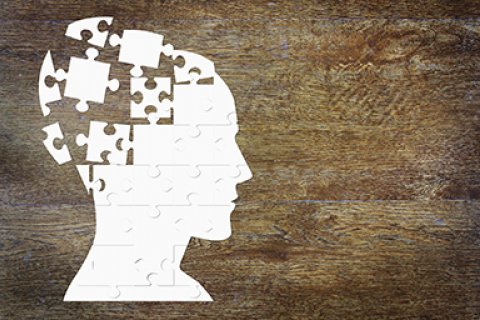Major study links genes to brain changes
Are there genes that affect how our brain develops over time? Researchers from Utrecht University and UMC Utrecht asked themselves this question and set up a comprehensive international study to answer it. A large number of knowledge institutions from all over the world participated in the study. After a great deal of data collection and number crunching, research leader and professor of Neuroscience at Utrecht University Hilleke Hulshoff Pol concludes: ‘Yes, certain genes do seem to influence the growth or shrinkage of areas of the brain.’ The results of the study were published in Nature Neuroscience on April 5.

For this study, colleagues Rachel Brouwer and Hulshoff Pol, together with over 200 other researchers from the ENIGMA Consortium, collected two MRI scans and genetic data from no less than 15,640 people from all over the world. The researchers studied how 15 different brain structures, such as the hippocampus, developed over time and whether there were any genes that they could link to (abnormal) changes.
Different emotions
Their meta-analysis revealed various genes that have a statistical link with brain changes. Three of them stood out clearly, namely GPR139, DACH1 and APOE. Hulshoff Pol: ‘Take the APOE gene, which plays a role in the risk of developing Alzheimer's disease. This gene now also appears to influence changes in two structures: the hippocampus, which among other things plays an important role in memory formation. And the almond-shaped amygdala that is essential for the processing and management of different emotions.’
If we know how a healthy brain develops, we may be able to predict brain diseases at an early stage. Ultimately, we may even be able to prevent them.
Extra dimension
The researchers added an extra dimension to the study by also examining whether the genes do the same thing throughout a person's life, or whether they have different effects in different phases of life. Brouwer: ‘For some newly found genes, it was indeed the case that they caused accelerated growth of a brain structure early in life and accelerated shrinkage later in life, for example.’ The researchers also compared the found collection of genes with other genes that were already known to play a role in disease or specific properties. Brouwer: ‘We found a genetic overlap with depression, schizophrenia and cognitive functioning. The genes that are connected with brain changes can therefore also influence the way we function.’
Prediction
Hulshoff Pol underlines the importance of this study: ‘Our brains are constantly changing, even when we are adults. As a result, certain areas of the brain become smaller or larger over time. These changes can affect how we function, how we develop and age, and possibly also the development of brain diseases.’ This makes them interesting to study, especially in combination with the study of our genes. ‘If we know how a healthy brain develops and which factors contribute to abnormal development, we may be able to predict brain diseases at an early stage. Ultimately, we may even be able to prevent them.’

